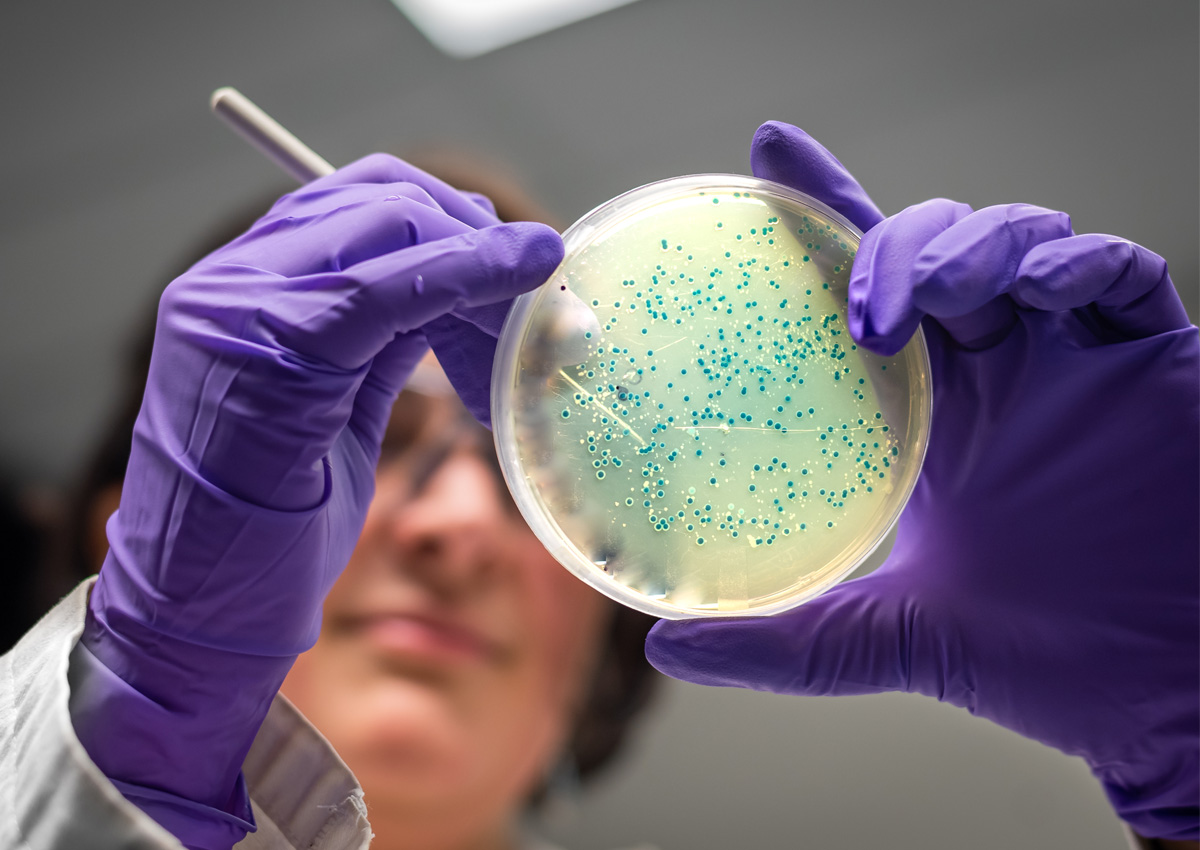
Scientists Produce New Antibiotics Using CRISPR-Cas9
December 1, 2021| |
Scientists from The University of Manchester have discovered a new way to produce complex antibiotics using CRISPR gene editing to reprogram pathways to future medicines urgently needed to fight antimicrobial resistance, treat neglected diseases, and tackle future pandemics.
The Manchester researchers used CRISPR-Cas9 to create new nonribosomal peptide synthetase (NRPS) enzymes that deliver clinically important antibiotics. NRPS enzymes are prolific producers of natural antibiotics such as penicillin. However, manipulating these complex enzymes to produce new and more effective antibiotics has been a major challenge for scientists to date.
The team says gene editing could be used to produce improved antibiotics and possibly lead to the development of new treatments in the fight against drug-resistant pathogens and illnesses in the future. Jason Micklefield, Professor of Chemical Biology at the Manchester Institute of Biotechnology (MIB), UK, explains: "The emergence of antibiotic-resistant pathogens is one of the biggest threats we face today. The gene editing approach we developed is a very efficient and rapid way to engineer complex assembly line enzymes that can produce new antibiotic structures with potentially improved properties."
For more details, read the article in The University of Manchester Newsroom.
| |
You might also like:
- Superbug Slaying Antibiotics Increase Production by Tenfold With CRISPR-Cas9
- Researchers Map Largest, Most Complex CRISPR System
- Survey Shows Most Australians Don't Know the Difference Between Bacterial and Viral Infections
Biotech Updates is a weekly newsletter of ISAAA, a not-for-profit organization. It is distributed for free to over 22,000 subscribers worldwide to inform them about the key developments in biosciences, especially in biotechnology. Your support will help us in our mission to feed the world with knowledge. You can help by donating as little as $10.
-
See more articles:
-
News from Around the World
- Report Highlights Alarming Increase of Hunger in Latin America and the Caribbean
- US Lawmakers Urge Biden to Enforce USMCA Compliance on Biotech
- Popular Pearl Millet Hybrid Improved through Genomics-Assisted Breeding
- APEC Workshop Aims to Bridge Gaps with Scicom
- Australian OGTR Invites Public Comments on GM Wheat and Barley Field Trial
- Biotechnology Approaches in Crop Improvement in Thailand: Genetic Engineering and Genome Editing
- ISAAA Asian Course Tackles Value Chain of LMOs, Biosafety Regulations, and Communication
- Scientists Discover Barley Gene Has Resistance to Different Pathogens
-
Research Highlights
- Researchers Boost Lysine Content in Camelina Seeds
-
Plant
- Scientists Produce New Antibiotics Using CRISPR-Cas9
- Guidelines Expanded for Arthropod Gene Drive Research
- Study Shows a Donor-DNA-free CRISPR-Cas-based Approach to Gene Knock-up in Rice
-
Read the latest: - Biotech Updates (February 18, 2026)
- Gene Editing Supplement (January 28, 2026)
- Gene Drive Supplement (February 22, 2023)
-
Subscribe to BU: - Share
- Tweet

